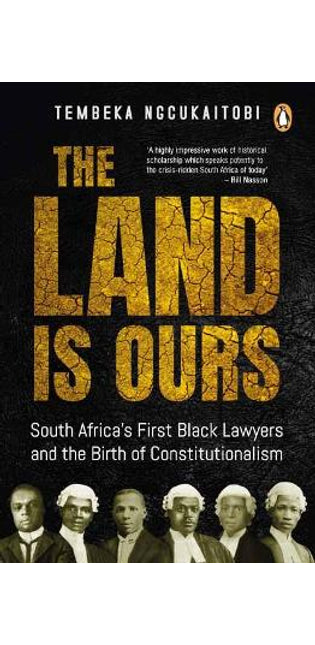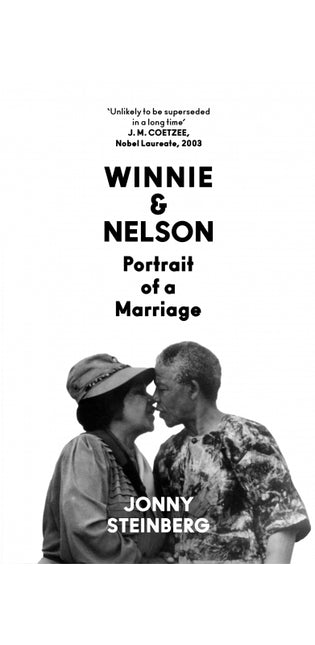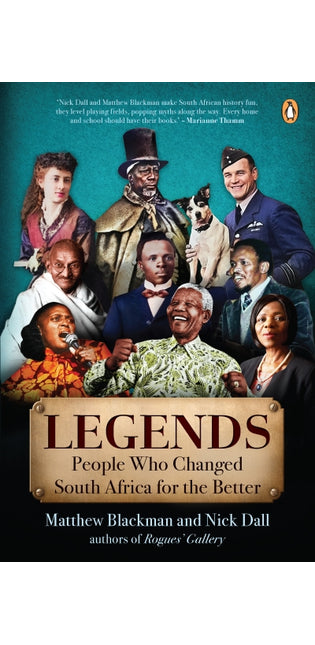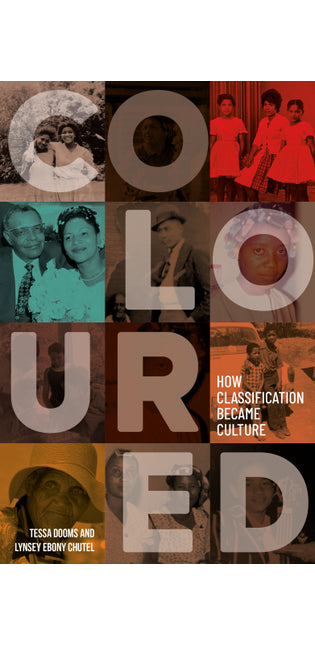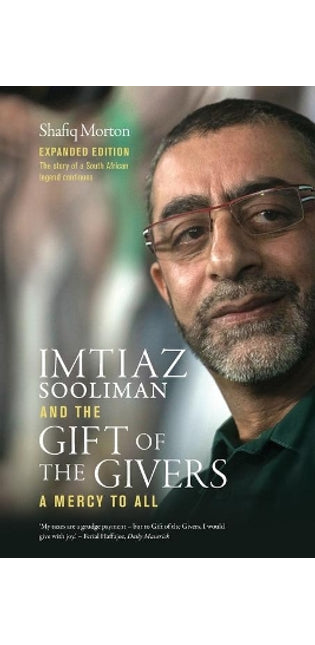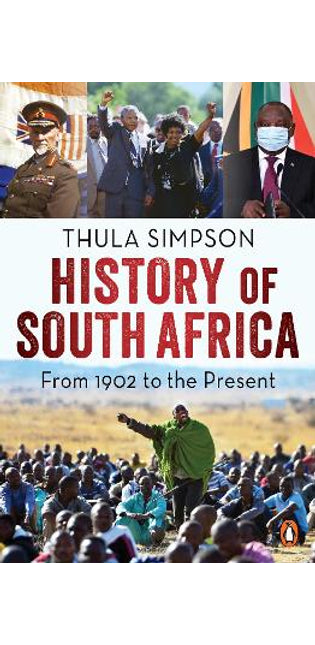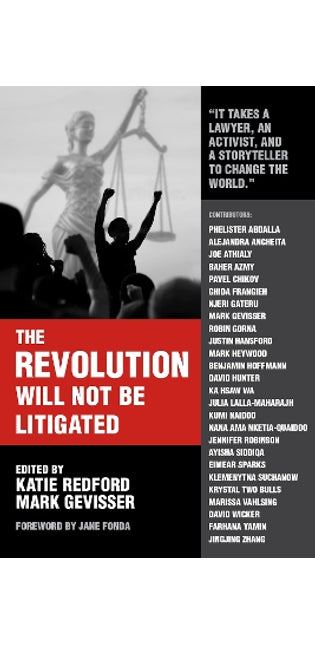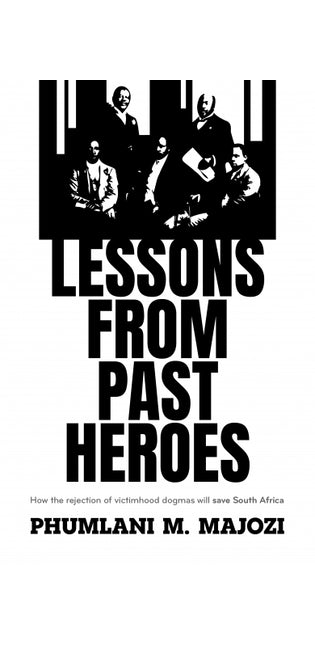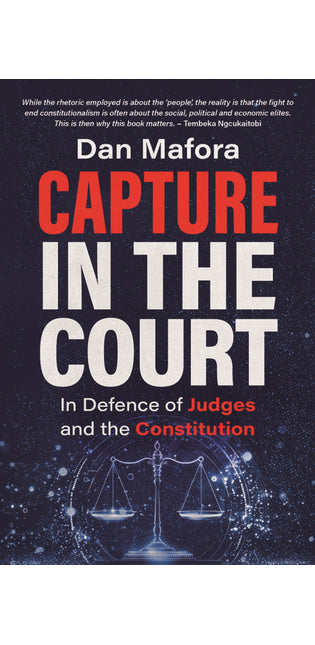Human Rights Day 2024

Human Rights Day is celebrated on the 21st of March every year in South Africa, as a reminder of the bravery and resilience of South Africans protesting pass laws in 1960. This year we honour 30 years of respect for and promotion of human rights. Our essential Human Rights Day reads celebrate South Africans: our triumph, hope and resilience, along with the people that continue to strive for equality, dignity, and freedom across South Africa.

The Land Is Ours
The Land Is Ours tells the story of South Africa’s first black lawyers, who operated in the late nineteenth and early twentieth centuries. In an age of aggressive colonial expansion, land dispossession and forced labour, these men believed in a constitutional system that respected individual rights and freedoms, and they used the law as an instrument against injustice. The book follows the lives, ideas and careers of Henry Sylvester Williams, Alfred Mangena, Richard Msimang, Pixley ka Isaka Seme, Ngcubu Poswayo and George Montsioa, who were all members of the ANC. It analyses the legal cases they took on, explores how they reconciled the law with the political upheavals of the day, and considers how they sustained their fidelity to the law when legal victories were undermined by politics. The Land Is Ours shows that these lawyers developed the concept of a Bill of Rights, which is now an international norm. The book is particularly relevant in light of current calls to scrap the Constitution and its protections of individual rights: it clearly demonstrates that, from the beginning, the struggle for freedom was based on the idea of the rule of law.
R 390.00

Winnie & Nelson
‘Unlikely to be superseded in a long time.’ – JM Coetzee One of the most celebrated political leaders of our time, Nelson Mandela has been written about by many biographers and historians. But in one crucial area, his life remains largely untold: his marriage to Winnie Madikizela-Mandela. During his years in prison, Nelson grew ever more in love with an idealised version of his wife, courting her in his letters as if they were young lovers frozen in time. But Winnie, every bit his political equal, found herself increasingly estranged from her jailed husband’s politics. Behind his back, she was trying to orchestrate an armed seizure of power, a path he feared would lead to an endless war. Jonny Steinberg tells the tale of this unique marriage – its longings, its obsessions, its deceits – making South African history a page-turning political biography. Winnie and Nelson is a modern epic in which trauma doesn’t affect just the couple at its centre, but an entire nation. It is also a Shakespearean drama in which bonds of love and commitment mingle with timeless questions of revolution, such as whether to seek retribution or a negotiated peace. Steinberg reveals, with power and tender emotional insight, how far these forever-entwined leaders would go for each other and where they drew the line. For in the end, both knew theirs was not simply a marriage, but a struggle to define anti-apartheid policy itself.

Legends
We have a lot to be positive about in South Africa. With all our problems, it’s easy to feel bleak. But hold those thoughts, because Legends might be just the tonic you need to drive off the gloom. This book tells the stories of a dozen remarkable people – some well known, others largely forgotten – who changed Mzansi for the better. Most South Africans are proud of Nelson Mandela – and rightly so. His life was truly astounding, but he’s by no means the only person who should inspire us. There’s King Moshoeshoe, whose humanity and diplomatic strategies put him head and shoulders above his contemporaries, both European and African. And John Fairbairn, who brought non-racial democracy to the Cape in 1854. Olive Schreiner was a bestselling international author who fought racism, corruption and chauvinism. And Gandhi spent twenty years here inventing a system of protest that would bring an Empire to its knees. Legends also celebrates Eugène Marais’s startling contributions to literature and natural history (despite a lifelong morphine addiction); Sol Plaatje’s wit, intelligence and tenacity in the face of racial zealots; Cissie Gool’s lifetime fighting for justice and exposing bigots; and Sailor Malan’s battles against fascists in the skies of Europe and on the streets of South Africa. Legends also celebrates Eugène Marais’s startling contributions to literature and natural history (despite a lifelong morphine addiction); Sol Plaatje’s wit, intelligence and tenacity in the face of racial zealots; Cissie Gool’s lifetime fighting for justice and exposing bigots; and Sailor Malan’s battles against fascists in the skies of Europe and on the streets of South Africa. And then there’s Miriam Makeba, who began her life in prison and ended it as an international singing sensation; Steve Biko, who shifted the minds of an entire generation; and Thuli Madonsela (the book’s only living legend), who gracefully felled the most powerful man in the land. Engagingly written and meticulously researched, Legends reminds South Africans that we have a helluva lot to be proud of.
R 350.00

Coloured: How Classification Became Culture
Coloured as an ethnicity and racial demographic is intertwined in the creation of the South Africa we have today. Yet often, Coloured communities are disdained as people with no clear heritage or culture — ‘not being black enough or white enough. Coloured challenges this notion and presents a different angle to that narrative. It delves into the history of Coloured people as descendants of indigenous Africans and a people whose identity was shaped by colonisation, slavery, and the racial political hierarchy it created. Although rooted in a difficult history, this book is also about the culture that Coloured communities have created for themselves through food, music, and shared lived experiences in communities such as Eldorado Park, Eersterus, and Wentworth. Coloured culture is an act of defiance and resilience. Coloured is a reflection on, and celebration of Coloured identities as lived experiences. It is a call to Coloured communities to reclaim their identity and an invitation to understand the history and place of Coloured people in the making of South Africa’s future.
R 280.00

Imtiaz Sooliman and the Gift Of the Givers
Imtiaz Sooliman, a medical doctor practising in Pietermaritzburg, South Africa, visited a Shaikh in Istanbul in 1992. The Sufi teacher gave him a message that would dramatically change the lives of countless people. ‘To my absolute astonishment he told me I would help people for the rest of my life. He then instructed me to form a humanitarian organisation called the “Gift of the Givers”, and repeated the phrase “the best among people are those who benefit mankind”.’ Almost 30 years later Gift of the Givers, Africa’s largest humanitarian and disaster agency, has a reputation for speedy responses to floods, war, famine, fires, tsunamis, kidnapping and earthquakes. Well known for their interventions in South African and international disasters, teams of volunteers have undertaken missions to places such as Bosnia, Palestine, Japan, Haiti, Indonesia, Malawi and Mozambique. In the last few years they have turned their attention to the poorest South Africans - they have put up hospitals, run clinics, dug wells, drilled boreholes, built houses, offered scholarships and provided shelter, food and psychological succour to millions. Originally published in 2014, the book has been brought up to date to continue the extraordinary tale of an organisation that has become a South African legend – the first to intervene in so many devastating situations and bring hope to those who have lost everything. Gift of the Givers’ reputation for direct, honest and non-partisan solution-finding has become a beacon of hope in South Africa.
R 330.00

Apartheid, guns and money
The apartheid state was at war. For two decades before 1994, while internal resistance grew, mandatory sanctions prohibited the sale of strategic goods and arms to South Africa. The last white regime was confronted with an existential threat. A global covert network of nearly 50 countries was constructed to counter sanctions. In complete secrecy, allies in corporations, banks, governments and intelligence agencies helped move cash, illegally supply guns and create the apartheid arms money machine. Whistleblowers were assassinated and ordinary people suffered. This is an exposé of that machinery created in defence of apartheid and the people who made this possible: heads of state, arms dealers, aristocrats, plutocrats, senators, bankers, spies, journalists and members of secret lobby groups. They were all complicit in a crime against humanity. Motivated by ideology or kinship most sought to simply profit from the war. Many have until now relied on lingering silence to erase the uncomfortable truth. This meticulously researched book lifts the lid on some of the darkest secrets of apartheid’s economic crimes, weaving together material collected in over two-dozen archives in eight countries with an insight into tens of thousands of pages of newly declassified documents. Interviews with spies, businessmen, politicians, sanctions busters and freedom fighters provide eyewitness accounts. Networks of state capture persist in our democratic political system because the past and present are interconnected. In forging its future a new generation needs to grapple with the persistent silence regarding apartheid-era economic crime and ask difficult questions of those who benefited from it. This book provides the evidence and the motivation to do so.
R 330.00

History of South Africa
Winner of the 2022 Humanities and Social Sciences Award for Best Non-Fiction Monograph South Africa was born in war, its growth has been marked by crises and ruptures, and it once again stands on a precipice. History of South Africa explores the country’s tumultuous journey from the aftermath of the Second Anglo-Boer War to the COVID-19 pandemic. Drawing on never-before-published documentary evidence – including diaries, letters, eyewitness testimony and diplomatic reports – the book follows the South African people through the battles, elections, repression, resistance, strikes, insurrections, massacres, economic crashes and health crises that have shaped the nation’s character. Tracking South Africa’s path from colony to Union and from apartheid to democracy, History of South Africa documents the influence of key figures including Pixley Seme, Jan Smuts, Lilian Ngoyi, H.F. Verwoerd, Nelson Mandela, Steve Biko, P.W. Botha, Thabo Mbeki, Jacob Zuma and Cyril Ramaphosa. The book gives detailed accounts of definitive events such as the 1922 Rand Revolt, the Defiance Campaign, Sharpeville, the Soweto uprising and the Marikana massacre. Looking beyond the country’s borders, it sheds light on the role of people such as Mohandas Gandhi, Winston Churchill, Fidel Castro and Margaret Thatcher, and unpacks military conflicts such as the World Wars, the armed struggle and the Border War. The book explores the transition to democracy and traces the phases of ANC rule, from the Rainbow Nation to transformation, state capture to ‘New Dawn’. It examines the divisive and unifying role of sport, the ups and downs of the economy, and the impact of pandemics from the Spanish flu to AIDS and COVID-19. With South Africa currently facing a crisis as severe as any in its history, the book shows that these challenges are neither unprecedented nor insurmountable, and that there are principles to be found in history that may lead us safely into the future.
R 465.00

Dear Comrade President
In his annual presidential address on 8 January 1986, ANC president Oliver Tambo called on South Africans to make apartheid ungovernable through armed action and militant struggle. But unknown to the world, on that very day, the quiet-spoken mathematics teacher and aspirant priest turned reluctant revolutionary had also set up a secret think tank in Lusaka, which he named the Constitution Committee, giving it an ‘ad hoc unique exercise’ that had ‘no precedent in the history of the movement’. Knowing that all wars end at a negotiating table, and judging the balance of forces to be moving in favour of the liberation movement, Tambo wanted the ANC to hold the initiative after the fall of apartheid. Assisted by Pallo Jordan, he instructed his new think tank to formulate the principles and draft the outlines of a constitution that could unite South Africa when the time came to talk in the fledgling days of freedom and democracy. The seven-member team, including Albie Sachs, Kader Asmal and Zola Skweyiya, started deliberating and reporting to Tambo. In correspondence, they typically addressed him as ‘Dear Comrade President’.Drawing on the personal archives of participants, Dear Comrade President explains how the purposeful first steps were taken in the making of South Africa’s Constitution. Why and how did this process happen? What were the first written words? When and where were they put on paper? By whom? What values did they espouse? And how did the committee’s work fit into the broader struggle? This book answers these questions in new, paradigm-shifting ways.
R 390.00

I write what l like
I Write What I Like features the writing of the famous activist and Black Consciousness leader, Steve Biko. Before his untimely death in detention at age 30, he was instrumental in uniting Black Africans in the struggle against the apartheid government in South Africa. This 40th anniversary edition includes a Foreword by Njabulo S. Ndebele, personal reflections on Steve Biko and Black Consciousness, as well as Biko’s first known published piece of writing. In addition, it features all the material of the original Picador Africa edition: a collection of Biko’s columns entitled I Write What I Like published in the journal of the South Africa Student Organisation under the pseudonym of ‘Frank Talk’; other journal articles, interviews and letters written by Steve Biko at the time; an Introduction by Nkosinathi Biko; a preface by Archbishop Desmond Tutu; and a moving memoir by Father Aelred Stubbs, which pays tribute to the courage and power of this young leader, who was to become one of Africa’s heroes.
R 260.00

People's War
Twenty-five years have passed since South Africans were being shot, hacked or burned to death in political conflict. The memory of the trauma has faded where some 20 500 people were killed between 1984 and 1994. Conventional wisdom claims that they died at the hands of a state-backed Third Force. The more accurate explanation is that they died as a result of the peoples war the ANC unleashed. After the peoples war began in September 1984, intimidation and political killings rapidly accelerated. At the same time, a remarkably effective propaganda campaign put the blame for violence on the National Party government and its alleged Inkatha surrogate. Sympathy for the ANC soared, while its rivals suffered crippling losses in credibility and support. By 1993 the ANC was able to dominate the negotiating process, as well as to control the militarily undefeated police and army and bend them to its will. By May 1994 it had trounced its rivals and taken over government. Many books have been written on South Africa's political transition, but none deals adequately with the people's war. This book does. It shows the extraordinary success of the peoples war in giving the ANC a virtual monopoly on power, as well as the great cost at which this was done. Apart from the terror and killings it sparked, the peoples war set in motion forces that cannot easily be tamed. Contemporary South Africa and the problems it confronts cannot be fully understood without a knowledge of the scars and damaging legacy of the peoples war. For this new edition of her seminal work, Anthea Jeffery has revised and abridged her book. She has also included a brief overview of the ANCs National Democratic Revolution, for which the peoples war was intended to prepare the way. Since 1994, the NDR has incrementally been implemented in many different spheres. It is also now being speeded up in its current and more radical phase.
R 330.00

The Revolution Will Not Be Litigated
Written from the maxim “it takes a lawyer, an activist, and a storyteller to change the world", The Revolution Will Not Be Litigated shows how the law and social movements can reinforce each other in the struggle for justice and freedom.In these vibrant narratives, 25 of the world’s most accomplished movement lawyers and activists become storytellers, reflecting on their experiences at the frontlines of some of the most significant struggles of our time. In an era where human rights are under threat, their words offer both an inspiration and a compass for the way movements can use the law – and must sometimes break it – to bring about social justice.The contributors here take you into their worlds: Jennifer Robinson frantically orchestrating a protest outside London’s Ecuadorean embassy to prevent the authorities from arresting her client Julian Assange; Justin Hansford at the barricades during the protests over the murder of Black teenager Mike Brown in Ferguson, Missouri; Ghida Frangieh in Lebanon’s detention centres trying to access arrested protestors during the 2019 revolution; Pavel Chikov defending Pussy Riot and other abused prisoners in Russia; Ayisha Siddiqa, a shy Pakistani immigrant, discovering community in her new home while leading the 2019 youth climate strike in Manhattan; Greenpeace activist Kumi Naidoo on a rubber dinghy in stormy Arctic seas contemplating his mortality as he races to occupy an oil rig.The stories in The Revolution Will Not Be Litigated capture the complex, and often-awkward dance between legal reform and social change. They are more than compelling portraits of fascinating lives and work, they are revelatory: of generational transitions; of epochal change and apocalyptic anxiety; of the ethical dilemmas that define our age; and of how one can make a positive impact when the odds are stacked against you in a harsh world of climate crisis and ruthless globalization. Contributors: Phelister Abdalla, Alejandra Ancheita, Joe Athialy, Baher Azmy, Pavel Chikov, Ghida Frangieh, Njeri Gateru, Mark Gevisser, Robin Gorna, Justin Hansford, Mark Heywood, Benjamin Hoffman, David Hunter, Ka Hsaw Wa, Julia Lalla-Maharajh, Kumi Naidoo, Nana Ama Nketia-Quaidoo, Katie Redford, Jennifer Robinson, Ayisha Siddiqa, Eimear Sparks, Klementyna Suchanov, Marissa Vahlsing, Krystal Two Bulls, David Wicker, Farhana Yamin and JingJing Zhang.
R 420.00

Lessons From Past Heroes
What can be learned from black South Africans who achieved success before South Africa became a democracy in 1994? What are the challenges they faced, and how did they overcome them? And, today, how have South Africans benefited from the country’s democratic system of governance? These are the questions Phumlani M. Majozi explores and attempts to answer in Lessons from Past Heroes. He traces black people’s success and political activity back to the early 1900s; successful men and women who spearheaded the struggle against the segregationist, colonialist government and devoted their lives to advancing the interests of their communities. Phumlani explores the careers,challenges, and successes of people such as Pixley ka Isaka Seme, John Langalibalele Dube, Sol Plaatje and Josiah Tshangana Gumede. During the apartheid years, South Africa produced black men and women who overcame the odds to succeed in their fields of business, entertainment, science, and politics. They excelled in the face of an oppressive government system, and their stories should inspire every South African today. After exploring the history of South Africa, Phumlani delves into the presentand the future; evaluating the challenges South Africans face and proposes solutions that can speed up their economic progress. He argues that much of South Africa’s history has portrayed the majority as victims of the minority, and that the inspirational stories of those people who overcame adversity are not being told widely enough.
R 340.00

Maye! Maye!
Kwa Mai Mai is the embodiment of everything Johannesburg is meant to be – the City of Gold, a place where dreams deferred come true. It is a constellation of people’s cultures, imbued with beautiful memories of life in villages left behind but cherished by those who refuse to forget. This book tells the story of how cultural memory, sacredly preserved and transported to new geographies, can be used both as a cultural weapon to resist subjugation and as an economic weapon to turn those priceless traditions into tradeable commodities. The book explores how the keepers of cultural memory can use it not only to survive but to invoke the entrepreneurial and creative spirit buried deep within their souls. Moreover, it builds on the assumption that if cultural memory can be stored and retrieved through artefacts, sites, ceremonies, myths and rituals, then Kwa Mai Mai is the place where these elements converge in inspiring displays of craftsmanship, worship and healing. Yet, Kwa Mai Mai has a darker side. It is a place of painful memories and ignored pleas – where its members are in a constant battle to be acknowledged by the city that created it. This book reveals how the subversive, socio-economic order that epitomised Kwa Mai Mai turned class theory upside down. In an interesting reversal of roles, the Kwa Mai Mai community, who used to be a migrant working class, wrested the power and control over the means of production from the dominant class. Through their heightened cultural consciousness, this marginalised migrant community has reimagined new economic realities and possibilities, forever distancing themselves from the painful, repressive past.
R 310.00

Capture in the Court
Since populist factions claim to be the people, judges confronting them do not just decide against the people; they are against the people. The judiciary faces a barrage of attacks not just from the ruling ANC but from other political parties clamouring for power. There comes a predictable phase in the cycle of politics where this is most likely to occur. Dan Mafora provides much-needed insight.
R 350.00

Odyssey to Freedom
In October 1941 a young boy and his father disembarked at Durban harbour from a large liner commissioned into emergency service by the Allies. They were Greek refugees from their German-occupied motherland. They spoke no English. They had little money and no prospects. They were heroes, but no one knew that. Some months earlier, father and son, together with two other Greek men and seven New Zealand soldiers, had set off in an open boat in an attempt to escape the German invaders. For two days and nights, sailing by instinct and the stars, battered by fierce winds, their food stocks running low, their water bottles almost empty, they ploughed across the Mediterranean towards Crete, little knowing that the island was soon to capitulate to the Germans. Fortunately the escapees sailed into an Allied fleet while it was still light and were rescued. Had they encountered the fleet in darkness their fate might have been dire, as, sometimes, in the horrors of war no prisoners were taken – a reality the young boy discovered not many nights later. The boy who stood on the Durban docks, appalled at the sight of Zulu men doing the work of animals by pulling rickshaws, would become one of the leading human-rights lawyers in the country that his father had chosen because the pavements were allegedly paved with gold. The boy was George Bizos. Today George Bizos is a legendary name, renowned throughout the legal profession and beyond. More than that, he is a figure recognised in townships across South Africa. For as an advocate, Bizos is associated with the Treason Trial of the late 1950s; the subsequent Rivonia Trial where his colleague, client and friend Nelson Mandela was sentenced to life imprisonment; the trial of Bram Fischer; that of the Namibian Toivo ja Toivo; a host of major human-rights trials through the 1970s and 1980s right up to the amnesty hearings of the Truth and Reconciliation Commission; and, in 2004, with the treason trial of the Zimbabwean opposition leader, Morgan Tsvangirai, in that country. A consummate lawyer, a self-styled street fighter with a quiet tone of voice and a beguiling smile who, in cross examination, would slice through the evidence of security police and apartheid apologists alike, Bizos haunted the courtrooms of the apartheid regime. For four decades he exposed State lies and hypocrisy, State brutality, and murder. In response the State badgered and threatened him, bugged his phone, obstructed his hearings. But the advocate was not to be intimidated. In this compelling and long-awaited autobiography, George Bizos reveals the drama, the heartache and the moments of triumph, the fears and the frustrations of his long career as an advocate. He writes, moreover, about himself and his family, and the domestic moments that made bearable the brutal years. He revels in his return to his beloved Greece, his joy at the Athens Olympic Games and his love of modern Greek poetry. Above all, his is a warm and compassionate account, related by a raconteur of note.
R 350.00



